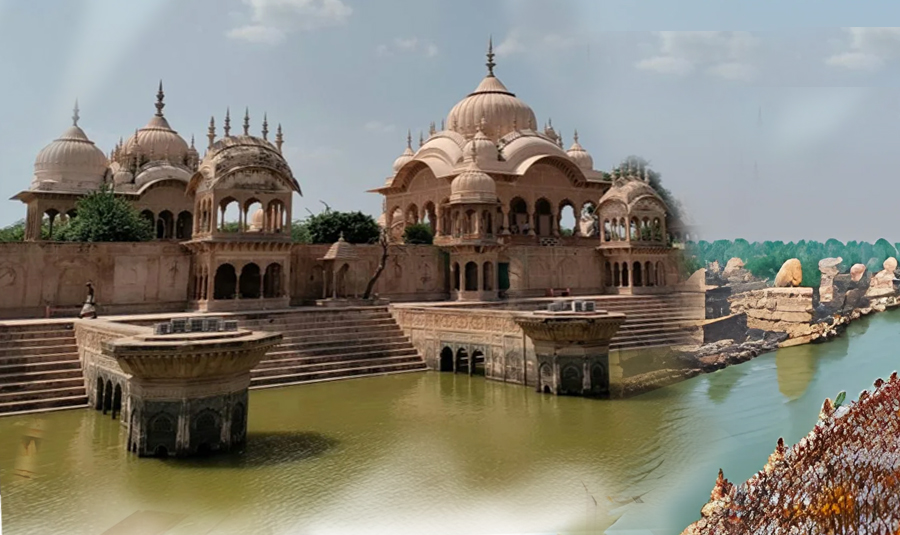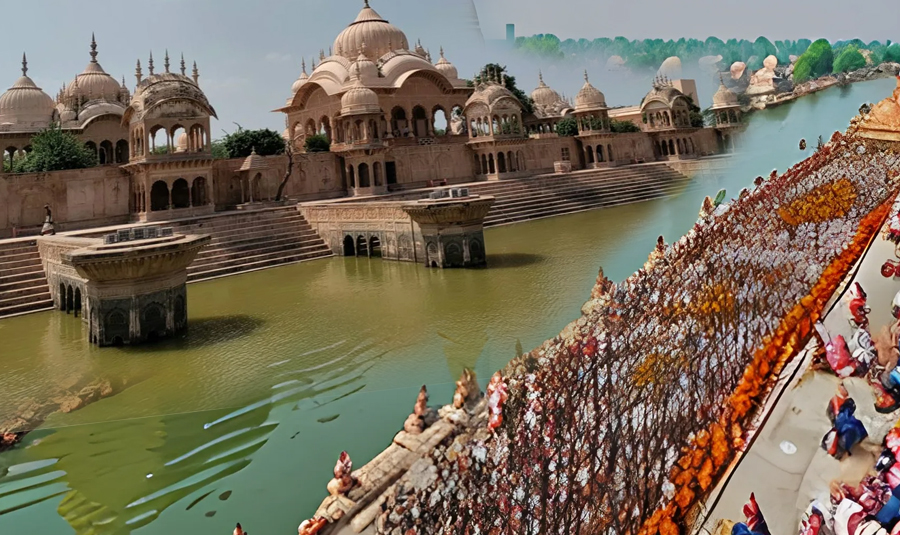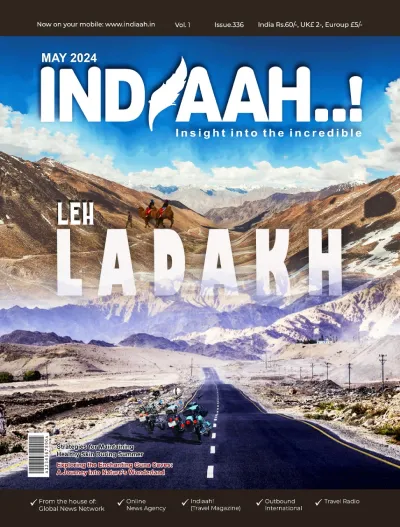

CBRE South Asia, one of India’s leading real estate consulting firms, recently announced the findings of its report, ‘Decoding Real Estate through the Spiritual Tourism Lens’. The report highlights retail chains capitalizing on the surge in spiritual tourism across 14 key cities in India. As more pilgrims and spiritual seekers visit holy cities in India, retail brands across segments, including fashion & apparel, food & beverage, hypermarkets, homeware & department stores and consumer electronics brands, are expanding by tailoring the offerings to the pilgrim’s needs. This trend underscores the symbiotic relationship between spiritual tourism and the retail industry, benefiting both sectors from the increased foot traffic.
This trend reflects a broader shift in tourist preferences, with travellers seeking transformative experiences beyond traditional rituals. The rise of urban spiritual tourism is catering to this desire, attracting visitors to cities known for their deep religious and spiritual significance. The report identifies Amritsar, Ajmer, Varanasi, Katra, Somnath, Shirdi, Ayodhya, Puri, Tirupati, Mathura, Dwarka, Bodh Gaya, Guruvayur, and Madurai as key cities witnessing this retail boom. Retail brands are strategically adapting their offerings in both established mall clusters and high-street locations to cater to the growing tourist population.
The surge in spiritual tourism can be attributed to enhanced infrastructure, including well-connected roads, airports, and public transportation, as well as the development of various accommodation options such as hotels, guesthouses, and wellness centres. To meet the growing demand for spiritual travel, local governments and businesses are joining forces to create unique retail experiences. This includes integrating local practices into the design and offerings of shops, restaurants, and hotels. Cities like Amritsar, Varanasi, Madurai, Puri, Guruvayur, etc. are leveraging their unique culinary traditions and local fashion expertise to further attract and engage visitors.
These improvements ensure a comfortable and convenient stay for pilgrims, spiritual seekers, and travellers visiting these cities.
Spiritual tourism remains an attractive revenue stream for India’s hospitality sector. Across various segments, such as economy, midscale, upscale and luxury, the hotel industry shows potential. Major hotel chains are adapting to the evolving preferences of spiritual tourists, offering clean, hygienic, and family-friendly accommodations that command premium pricing. Several cities have a strong pipeline of new hotel projects, with well-known brands like Marriott, Taj, and Hyatt showing keen interest in entering this market. Branded hotels are emerging as key players, offering a blend of comfort and traditional hospitality tailored for spiritual seekers. Boutique and experiential hotels provide personalised services, curated spiritual activities, and authentic local experiences.
In India, a partnership has developed between wellness centres and hospitality brands to serve the needs of spiritual tourism. Wellness centers offer services like yoga and Ayurveda to enhance physical, mental, and spiritual health. Meanwhile, hospitality brands create serene environments, customized wellness programs and provide access to sacred sites and temples for immersive spiritual experiences. This collaboration meets the needs of a growing number of travelers seeking a deep connection with India’s spiritual traditions, thus supporting the flourishing spiritual tourism sector.
Anshuman Magazine, Chairman & CEO – India, South-East Asia, Middle East & Africa, CBRE, said, “The rapid expansion of spiritual tourism in India is driving the growth of the country’s faith-based tourism market. Government initiatives to promote tourism and improve connectivity between pilgrimage sites are further boosting this growth. The rise of online retail platforms offering easy access to faith-based products and services is also a key factor.”
Ram Chandnani, Managing Director, Advisory & Transaction Services, CBRE India, said, “Driven by the growing popularity of spiritual tourism, investors are flocking to capitalise on the market’s potential. Guided by a commitment to cater to the unique needs of spiritual travellers, these investments aim to deliver high-quality accommodations, bolster infrastructure, safeguard heritage sites, and ultimately drive regional economic growth. This trend has created opportunities for the hospitality and retail sectors to thrive in these destinations.”
Modern travellers’ quest for transformative experiences has propelled urban spiritual tourism. Enhanced infrastructure, including improved highways, upgraded railway stations, and new airports in cities like Varanasi, Ayodhya, Amritsar, etc. makes these spiritual hubs more accessible. Additionally, streamlined travel services such as online booking systems, tourist information centers, and heightened security measures enhance the overall travel experience. This shift towards experiential travel is largely driven by younger generations seeking cultural immersion and spiritual growth. Tour companies are responding to this demand by offering personalized pilgrimages and wellness programs that include activities like meditation, yoga, and Ayurveda.

